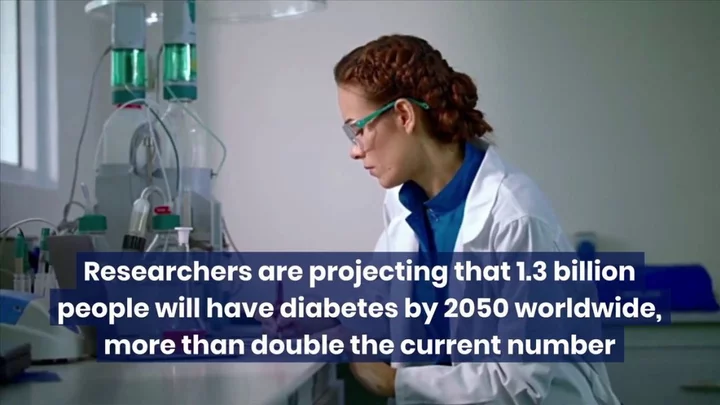
Intel: With New Drivers, Arc GPUs Run 19% Faster for DirectX 11 Games
It’s easy to ignore or even forget Intel’s desktop GPUs. But the company has been
2023-08-18 21:47

Fewer vs. Less: When to Use Each
‘Less’ versus ‘fewer’ is pretty straightforward. ‘Less than’ vs. ‘fewer than’ is slightly less so. Here’s how to get it right every time.
2023-08-18 21:25

Scientists discover that neanderthals were getting high on psychedelics millions of years ago
Neanderthals liked to unwind after a hard day’s work hunter gathering by consuming psychoactive drugs, a new study has found. A discovery of human hair strands at a burial site in Menorca, Spain has given us evidence of drug use in prehistoric times. Research was put forward in a new study published in the journal Scientific Reports, and they shine new light on drug use throughout history. The findings uncovered a number of different alkaloid substances which came from nightshade plants. They contain scopolamine and atropine which can cause hallucinations and out-of-body experiences, while ephedrine is a stimulant. The cave also contained boxes patterned with psychedelic decorations, which could well have been decorated while neanderthals were under the influence. Elisa Guerra-Doce is an associate professor of Prehistory at the University of Valladolid and lead author of the study. Guerra-Doce told The New York Times: "These findings are so singular. "Sometimes when people think about drugs, they think it's a modern practice. These results tell a different story." Ethnobotanist Giorgio Samorini, who wasn’t involved in the study, also told the publication: "This was not a profane purpose of 'searching for a high' but more generally the search for existential meaning that has been largely lost to time.” Sign up for our free Indy100 weekly newsletter Have your say in our news democracy. Click the upvote icon at the top of the page to help raise this article through the indy100 rankings.
2023-08-18 21:23

JPMorgan Expands $7 Billion ETF Platform With Funds Tied to PAB
The asset management unit of JPMorgan Chase & Co. has launched two new exchange-traded funds tied to Paris-aligned
2023-08-18 20:18

India's Jio launches Netflix subscription on prepaid plans
Reliance Jio Infocomm, the telecom arm of Indian billionaire Mukesh Ambani's Reliance Industries, said on Friday it has
2023-08-18 19:24

How Satellites Are Helping Farmers Adapt to Global Warming
When to harvest is one of the most crucial decisions a winemaker can make. Too early, and the
2023-08-18 19:17

AI poses a profound threat – but could also help us in a variety of important ways, experts agree
Artificial intelligence poses a major threat to humanity and the world – but also has a range of positive uses, experts have said. Those positive uses include the development of new kinds of life-saving drugs, revolutionary new educational technologies and ways to make media and art more accessible to people. But the potentially liberating and exciting uses of AI risk being overshadowed by the fear and panic over the potential problems of the technology, the experts warned. That was the conclusion of The Independent’s latest premium live event, which saw experts discuss the question: “How much of a threat does AI really pose?” To attempt to answer the question, The Independent’s technology editor, Andrew Griffin, was joined by deputy technology editor Anthony Cuthbertson and two world-recognised experts in their field. Andrew Rogoyski is director of innovation and partnerships at the Surrey Institute for People-Centred AI, and Catherine Breslin is a machine learning scientists and consultant who previously worked on Amazon Alexa and at other companies, and now runs Kingfisher Labs, an artificial intelligence consultancy. All panelists agreed that one of the most pressing issues about artificial intelligence is it being used to fill the internet with “sludge”: “automatically generated noise”, as Rogoyski described it, that could make it difficult to tell humans from artificial intelligence systems. “If you think of how much we depend on information on the internet, the idea that it's filled with rubbish – it's bad enough as it is,” he said. “But the idea that it's automatically generated, I think, is the most real extant threat of the misuse of AI.” Catherine agreed and noted that “sludge” could be made up of not only text but also “images and video and audio as well”, warning that people are not aware of just how easy it is to create convincing audio and video that pretends to be somebody else. “We won't necessarily be able to trust what is real and what is not real and without better ways of validating where images and video and audio come from,” she said. “So I think that this being able to generate media quickly, convincing media quickly, and then being able to send it out on the internet and the speed and scale at which information disseminates there – I think those two things combined will make for interesting times in the future when we have to grapple with the realities of validating our media.” But even amid that fear, the experts said that there were many very exciting possibilities being offered by technology. “Some of the biggest problems humanity faces could potentially be solved by an advanced artificial intelligence,” said Cuthbertson, pointing to its use in medicine and elsewhere. Rogoyski said that many of the benefits of AI are already being “taken for granted”. The technology is already used in science, medicine, to moderate the internet and to improve manufacturing and logistics, he said, and in every day ways such as the organisation of photos on our phones and information in our search engines. Even the fear that people could lose their jobs to artificial intelligence might be misplaced, the experts said, if companies instead use the technology to augment rather than replace their employees. Already, legal professionals are using artificial intelligence to navigate court audio, and doctors are using it to transcribe medical notes – freeing those people up to do helpful work for their clients and patients, Breslin noted. The entire conversation – which included discussions on the military use of artificial intelligence, its effects on the arts, and much more besides – can be viewed above. Read More Google may soon roll out AI ‘personal life coach’ ‘I’m scared’: Snapchat’s AI posts image that terrifies users How much of a threat does AI really pose? Get your ticket for our free event
2023-08-18 18:45

Study finds that divorced diabetic men have higher risk of amputation
Divorced men with diabetes are at the highest risk of having some or all of their feet and legs amputated because of it, research has found. According to a study of almost 67,000 people with diabetes in Sweden, people with the condition who are divorced are 67 per cent more likely to have to undergo a lower limb amputation than those who are married. Meanwhile men are at 57 per cent greater risk than women. On average, 184 people a week in England have some part of a lower limb removed surgically to stop infection spreading and killing them. Lasantha Wijesinghe, a consultant vascular surgeon in England who performs lower limb amputations, said they were usually necessary because the person’s life was at risk because of sepsis. The authors of the study, which has not been peer-reviewed yet, said they could not be sure why divorcees of both sexes ran such a greater risk than married people, but speculated that this “may be due to a change in self-care and food habits observed in people when they divorce and are more likely to be living alone”. “Specifically with men, this is often related to more social isolation, with a secondary effect of low physical activity,” they added. Older people are also at higher risk of an amputation and patients who are on insulin treatment, have a pre-existing foot condition such as neuropathy or who smoke are also at higher risk. The study also concluded that obese people have a lower risk than those with a standard weight. The authors could not explain this finding but suggested it could be down to chance. Dr Faye Riley, the research communications manager at Diabetes UK, said: “This study identifies a range of factors that may be linked with a higher risk of amputation among people with diabetes, and raises interesting questions about how social support can influence our health behaviours and outcomes. By pinpointing which people with diabetes are most at risk, support can be targeted where it’s most needed.” Sign up to our free Indy100 weekly newsletter Have your say in our news democracy. Click the upvote icon at the top of the page to help raise this article through the indy100 rankings.
2023-08-18 18:45

Signs Of A Possible Thaw Between The US And Iran: Big Take Podcast
Listen to The Big Take podcast on iHeart, Apple Podcasts, Spotify, Terminal. The US and Iran recently announced
2023-08-18 18:26

Bitcoin drops to new two-month low as world markets sell off
By Elizabeth Howcroft LONDON (Reuters) -Top cryptocurrency bitcoin hit a fresh two-month low on Friday, breaking out of its recent
2023-08-18 17:54

Top US Firms From Apple to Intel Decry India PC Import Curbs
A broad coalition of America’s largest businesses from Apple Inc. to Intel Corp. protested the abrupt way in
2023-08-18 17:47

Google may soon roll out AI ‘personal life coach’
Google is reportedly planning to roll out a new artificial intelligence tool that provides “life advice” and acts as a “personal life coach” along with many other AI chatbots to perform tasks like writing and tutoring. The new tools under development are reportedly part of the tech giant’s efforts to drive research further on generative AI systems like ChatGPT in competition with rivals, including Microsoft and OpenAI. Google’s AI teams are testing the use of new tools, such as those behind chatbots like OpenAI’s ChatGPT and the company’s own Bard, into a personal life coach that offers life advice on topics ranging from career decisions to relationship troubles, the New York Times first reported. The tech giant has reportedly teamed with the AI training company Scale AI to evaluate the new “life coach” chatbot. Over 100 experts with doctoral degrees in various fields are also testing the bot rigorously, according to the New York Times. Since the surge in popularity of OpenAI’s ChatGPT, many tech companies and services, including Google, Facebook, and Snapchat have attempted to develop their own versions of the generative AI technology to better interact with users and offer human-like responses to queries. However, some of these AI tools have raised concerns over the validity of their responses as well as privacy issues. Experts have also flagged multiple instances of chatbots making facts up in what is widely called “AI hallucination” – a problem many say may not be fixable. In one instance, an American non-profit for supporting those with eating disorders was forced to take down its AI chatbot after it was revealed that it offered harmful advice instead of helping people. AI experts continue to warn that while such chatbots are very good at giving convincing answers in response to questions, they can often provide information that is not factually accurate. The latest attempt by Google to use AI technology to offer personalised life advice strays from its current guidelines for its Bard chatbot which warns users not to use the AI tool’s responses for “medical, legal, financial, or other professional advice.” Bard’s guidelines also warn users not to include “confidential or sensitive information” in their conversations with the chatbot. Read More Snapchat experiences ‘temporary outage’ as My AI chatbot posts own Story Amazon is rolling out a generative AI feature that summarizes product reviews Paper exams, chatbot bans: Colleges seek to 'ChatGPT-proof' assignments ‘I’m scared’: Snapchat’s AI posts image that terrifies users How much of a threat does AI really pose? Get your ticket for our free event AI-driven cyberattack can now steal passwords with near 100 per cent accuracy
2023-08-18 12:58
